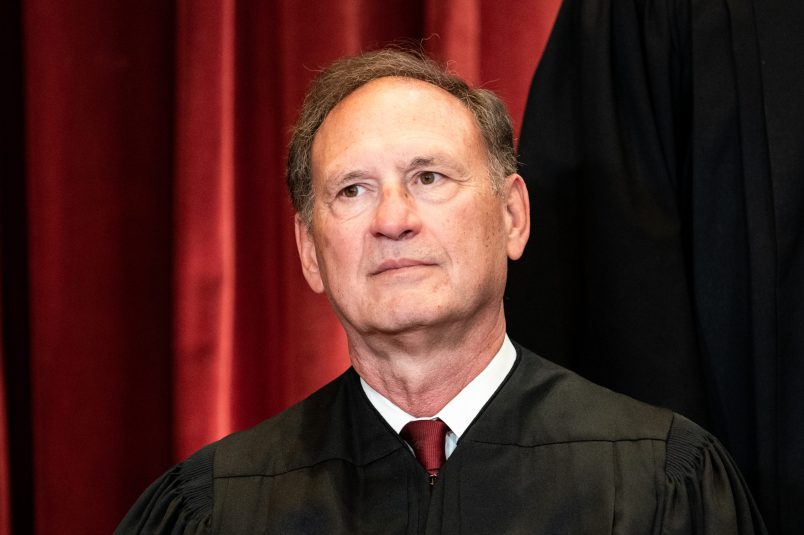In a Tuesday letter to Chief Justice John Roberts, Sen. Sheldon Whitehouse (D-RI) accused Justice Samuel Alito of “obstructing a congressional investigation” and demanded that Roberts take some form of unspecified action.
At its core, Whitehouse’s letter – styled as an ethics complaint – is about Alito’s cozy relationship with the Wall Street Journal’s opinion page. Alito took to the section to issue a preemptive strike against a ProPublica article which reported on his covert and cozy relationship with billionaires with business before the court.
Soon after, in July, Alito took things a step further: The Wall Street Journal published an interview with Alito, which he gave to a writer for the section and to an attorney named David Rivkin.
Rivkin represents right-wing legal impresario Leonard Leo before Whitehouse’s investigation. Rivkin also represents a pair of plaintiffs seeking to rewrite the country’s tax code in order to avoid a $14,729 tax bill. The Supreme Court agreed to hear the case as Alito sat for the interview.
Whitehouse cited Alito’s WSJ interview as prompting his letter to Roberts, describing it as part of an “obstructive campaign” against Congress’ efforts at establishing an ethics code which would apply to all the justices on the Supreme Court.
Alito averred in the interview that he happens to believe no “provision in the Constitution gives [Congress] the authority to regulate the Supreme Court—period.”
Whitehouse described that as “improper opining on a legal issue that may become before the court,” and one which only helps Alito conceal and continue his relationship with Rivkin’s client – Leonard Leo – and various billionaires.
“At the end, Justice Alito is the beneficiary of his own improper opining,” Whitehouse wrote in the letter.
Whitehouse also emphasized Alito and Rivkin’s relationship in light of the Moore case, which is on the docket for this term.
“Questions abound about the extent of private access Justice Alito has afforded Mr. Rivkin, who has appeared before the Court numerous times, particularly while Mr. Rivkin’s petition for a writ of certiorari was pending in Moore,” Whitehouse wrote.
There’s no formal process for a senator to file an “ethics complaint” against a justice. As Whitehouse noted in the letter, there’s no body apart from the court itself which really exists to hold justices accountable or police them for misconduct.
Rather, the senator said, the court “has insulated its justices from any semblance of fair fact-finding.”
Whitehouse declined to ask Roberts to take any specific action on a proposed ethics code or against Alito.
Rather, he asked Roberts only to “take whatever steps are necessary to investigate this affair and provide the public with prompt and trustworthy answers.”
Read the letter here:



